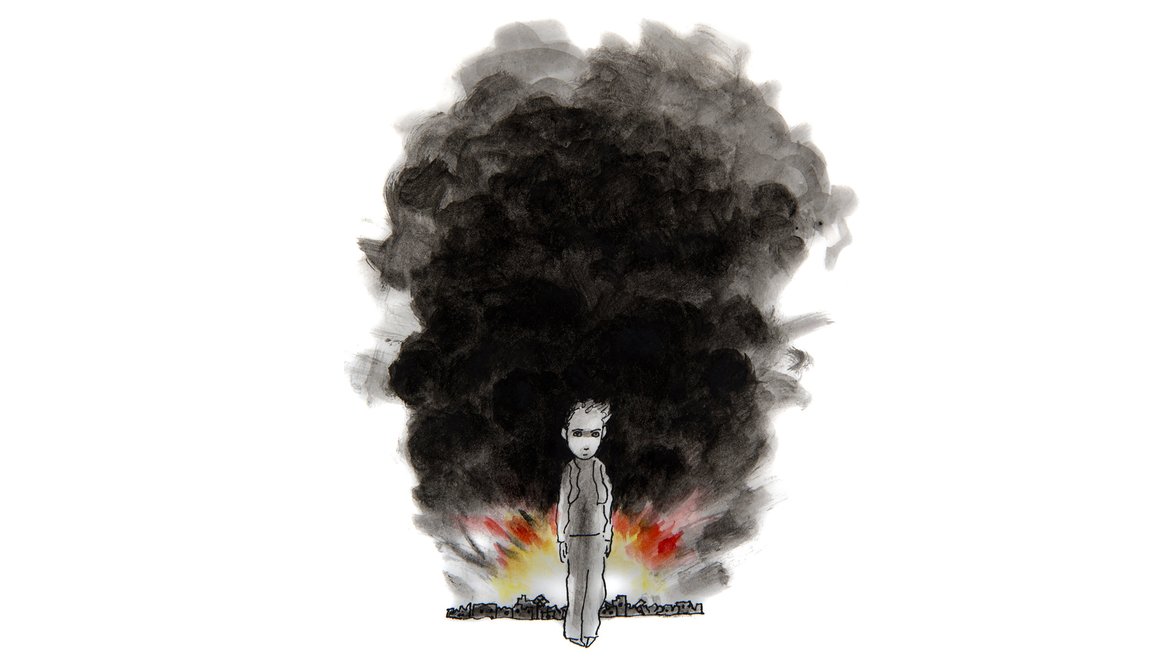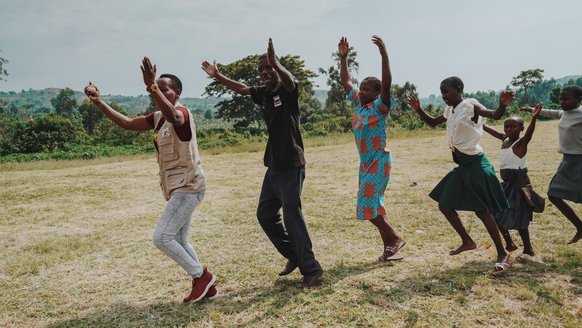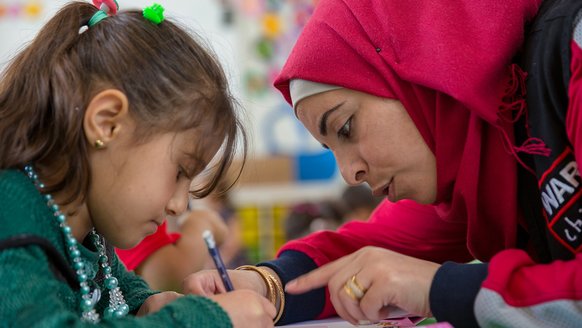Our #DrawTheLine Campaign
May 20, 2019

The facts
- No child has ever started a war. Yet more than 420 million children grow up in conflict areas.
- They witness violence, are sometimes forced to fight themselves or lose family and friends in the brutality of war.
- About 20% - that’s 84 million children - show dramatic emotional and behavioral changes.
- They are desperate, anxious and insecure. Even if the violence stops, there is no peace for them. A war leaves behind not only visible but also many invisible scars.
- The conflict marks them for the rest of lives. But with the right psychosocial support, this doesn’t need to be the case.
- Our goal is that children affected by conflict become normal children again. By helping process their stressful experiences, they can once again dream, learn and play.
Traditional emergency aid
With traditional emergency aid, children get a roof over their heads, a warm blanket and food and drink. These necessities are clearly visible and we are fully in support of these facilities that are made available to them. But these alone are not enough. We want to add: psychosocial support.
Our campaign #DrawTheLine raised awareness on how millions of children are unnecessarily being marked for life. Thousands or supporters signed our petition, for which we are extremely grateful.
Silent crisis: psychosocial support hardly provided
With the right psychosocial support, children can overcome the negative impacts of war. This support improves their psychosocial wellbeing, tapping into their inner strength and connecting with their natural playfulness, flexibility and creativity. It helps them to face and shape their own future with more confidence.
To prevent millions of children from being marked for life, they urgently need psychosocial support. Yet it is hardly ever provided anywhere in the world. This is a silent crisis of enormous proportions.
We cannot do this alone
Unfortunately, we cannot help all the children ourselves. To succeed we need psychosocial support for children affected by armed conflict to become a permanent element of international emergency assistance.
As an expert organisation we appeal to the international community
In October 2019, the Netherlands hosted an important international summit on mental health care in conflict-affected areas. War Child played a substantive role, due to our many years of expertise. Dozens of ministers from around the world came together to discuss this topic.
During the summit, six young people from conflict-affected areas handed over our #DrawtheLine petition to Dutch Princess Mabel and Sigrid Kaag, Minister for Foreign Trade and Development Cooperation. Our petition received the support of 20,803 people in Germany, the Netherlands and Sweden.
The conference and petition was a great first step in raising awareness for and acknowledging the importance of urgent psychosocial support. Now, however, it is high time to take concrete actions to provide additional funding for psychosocial support for children in armed conflict.
- We will continue to champion psychosocial support and advocate for funding. Because doing nothing is not an option.
- We must prevent the creation of lost generations. To us it is clear: the children of today are the adults of tomorrow. They must shape their own future and that of their country.
- However, this can only happen successfully when a child has overcome war.
You're in school, but you cannot concentrate.
You have food, but no appetite.
You have a friend, but fear for his life.
You have a warm blanket, but can't sleep out of fear for nightmares.
(The figures mentioned in this article are based upon on recommendations from the Lancet Commission on Global Mental Health, 2018, the plans of the World Health Organization (WHO) 2013-2020, the Sustainable Development Goals of the UN (SDGs 2015-2030) and the London held World Mental Health Summit 2018.)

